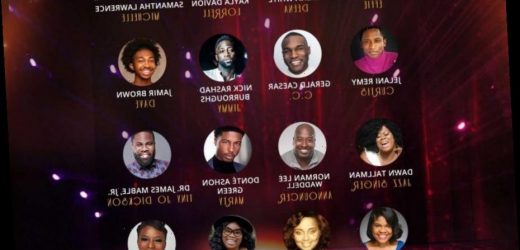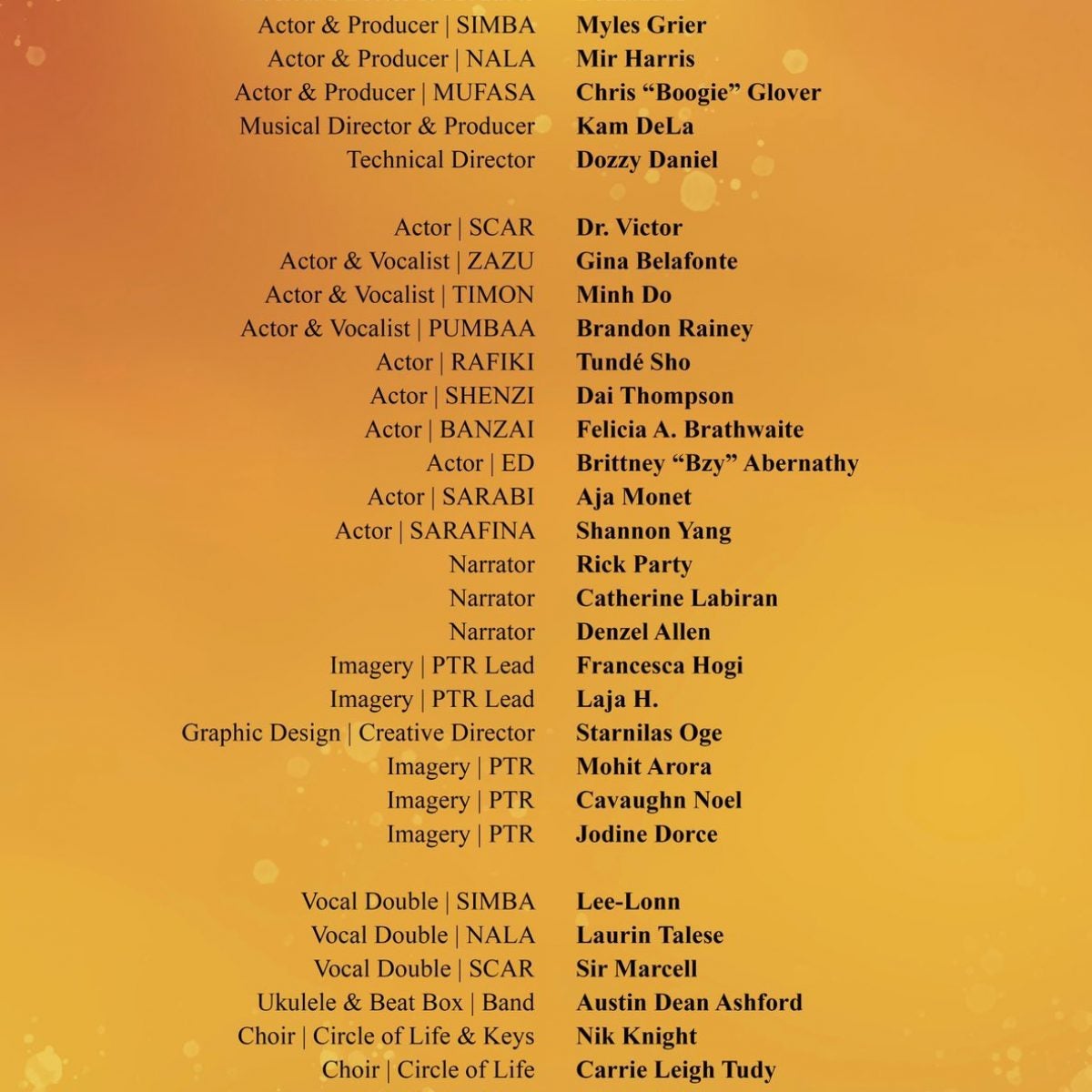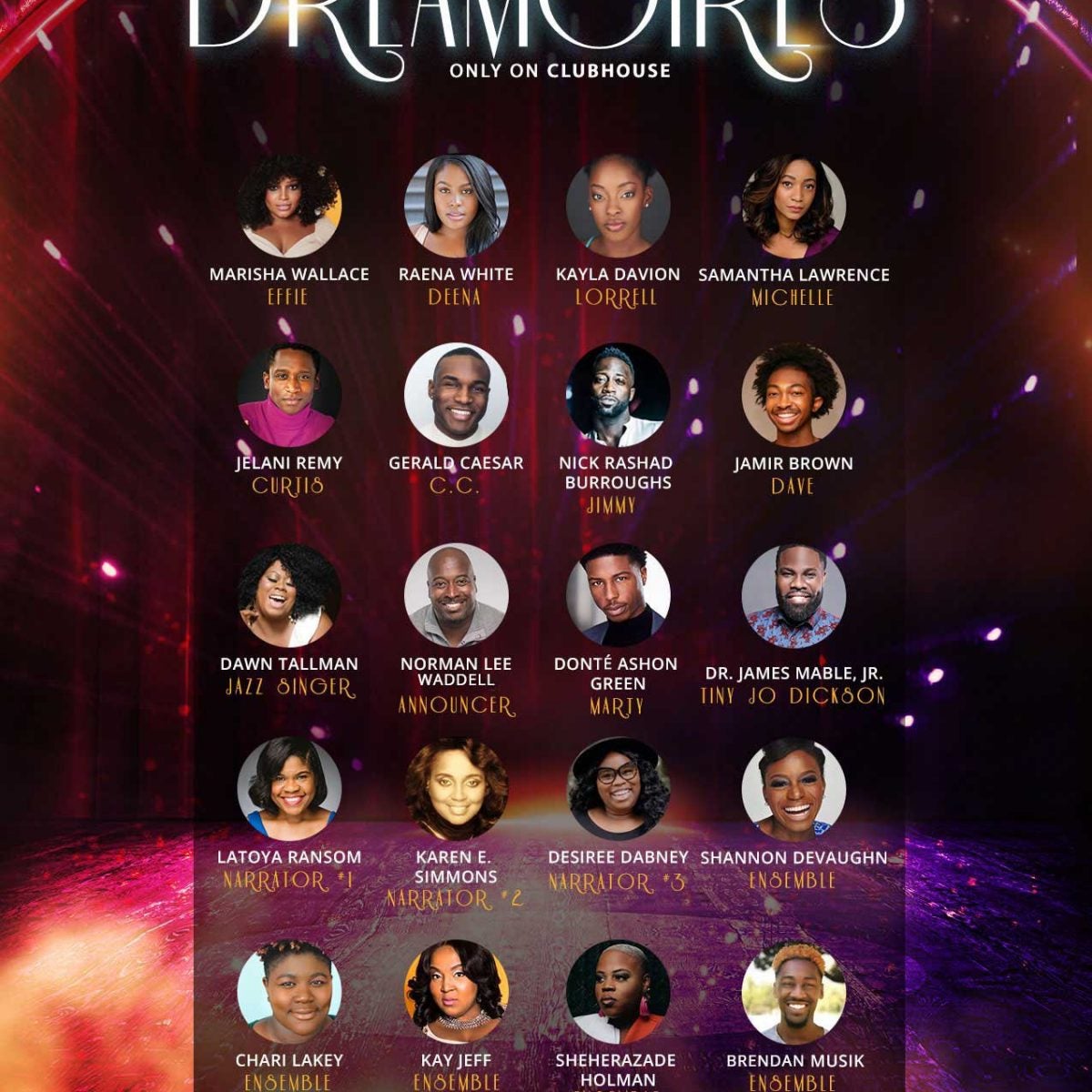If there’s one thing about Black people, we will make something out of nothing. And when it comes to Black women, we create magic from ashes. Such has been the case for Black culture and entertainment on Clubhouse, the beta app that has everyone talking— literally. The app, which was created in 2020, has catapulted from being a place to network and meet new people to a place where users can listen in to live performances of Broadway and movie classics.
Thanks to Black women and Black voices, Clubhouse— also known as CH—has changed the way in which we consume entertainment. The app came right on time, serving as a place where people could gather vocally without being in one another’s presence, in the midst of the global pandemic. Now, not only has the app allowed people to make connections, but it also has been a space where creatives from all over the globe can come together, gain exposure, try new things, and most of all, spread joy to the collective during a difficult time.
That’s exactly what happened on Dec. 26, when a group of creatives performed an adaptation of The Lion King on Clubhouse. What started as a chance encounter by mostly creatives of color morphed into a large scale production, attracting 5,900 listeners.
“The Lion King was one of those magical moments with us and the gang on Clubhouse where we kind of just went through a natural progression of meeting new people and magic happens,” said Noelle Chestnut Whitmore, who executive produced the production alongside Mir Harris, Myles Grier, Bomani X, Chris Glover, and Kam De La. “The original vision was just to kind of give support for Chris so that he can see himself doing this and then the rest, what happened afterward, was history.”
Glover, a producer and the actor who voiced Mufasa in the production, dreams of being a voice actor.The group thought Glover sounded like James Earl Jones, the original Mufasa in the 1994 movie, and the building for the production soon followed suit. The six—who would later become six of the seven members on The Lion King CH production team— had various connections stemming from Clubhouses’ differing social groups including The Cotton Club, Bomani’s Jam Sessions, and a few other rooms that Whitmore hosted to bring other like-minded creative folks together.
At the time, the production was the biggest room ever to be hosted on Clubhouse. “On the technical side of things, the max in a room is supposed to be 4,999 because it glitches over that [number],” said Indya Icy Wright, the public relations lead for the team. “There was a wide technical glitch for a lot of users that weren’t even in the room but in other rooms, because the performance was so popular, it broke the server.” The actual room where the audio performance was being hosted continued on without a hitch.
That night, The Lion King trended number two on Twitter, nationwide. “It was so funny because I had a conversation with one of my friends and he was like ‘yeah, people were broadcasting it live on Instagram because they couldn’t get in the room,” said Whitmore. Prior to The Lion King, there were various rooms on Clubhouse that held table readings for theater plays, including A Raisin In The Sun. Although the idea of the theater on Clubhouse wasn’t new, Lion King’s audio success brought new potential to Clubhouse and set a new standard for future performances.
Now Dreamgirls is underway and is intentionally slated for Black History Month. Best friends and executive producers Brandon Patterson and Sydney Connors, set out to create a project to showcase Black talent and joy and figured what better way to do so than with their favorite musical? After tuning into audition rooms for other productions, Connor was inspired to produce her own.
“I was just like wow, we can do a lot here,” she said. “It’s super innovative and it’s beta form. Once I saw A Raisin in The Sun— this was probably a week before The Lion King big production happened — I was like okay, I want to do a show. I was talking to Brandon and we were joking about it at first but we ended up being like, ‘let’s do Dreamgirls.’”
On Jan. 2, the Dreamgirls production team held its first round of auditions. With more than 5,000 people in the room, the auditions were a buzz across social media.
“Dreamgirls—a predominantly Black cast, which will have four different showings featuring different cast members —is making history casting both celebrities and amateurs and leveling the playing field for those already in show business and who aspire to be,” said Leroy Church, the associate producer and casting director of the production. Notable players like Henry Krieger, the producer of the movie which was remade in 2006 following the original Broadway musical in 1982, were in the audition room giving feedback, advice, and support to the production team and potential cast members. “We had the original Dreamgirl herself, Tony-nominated Sheryl Lee Ralph, Amber Riley came up, even Shirley Murdock,” Church added. “It was amazing to see so many people reaching out, we still have people reaching out.”
The opportunity for those not yet in show business to be among professionals levels the playing field for those still waiting on their big moment. “Sometimes we make everything about money and Clubhouse has a way of stripping that down,” said Church. “We have a full cast of Broadway stars who, including myself, would not be working for free, but we’re in such a unique time with the pandemic and quarantine and all of us being on unemployment, that something like this is able to happen,” said Church.
Dreamgirls is set to premiere on Clubhouse on February 27th and 28th at 1pm and 7pm EST. “We have four different casts and we have them separated by Broadway elite, breakout stars, and the Clubhouse people who this is going to be their first time performing. Then we have America’s favorites, those who have been on shows like America’s Got Talent, which is contestant-driven like Sunday’s Best. Lastly is going to be the celebrity surprise, secret celebs, we have a surprise guest Effie. So weekly we’re going to roll out who that is in small details,” Church added.
Productions like Dreamgirls and Lion King weren’t based on notoriety but the organic chemistry of Black excellence, pointed out Harris, a producer and the voice of Nala on The Lion King. “This was what it was divinely because of how God moved through all of us. We wanted to bring joy to people in a really difficult time.”
And it can’t be overlooked that “Black women have lit up this app,” said Connors. “We have innovated like we often do, we just came in and sprinkled our magic.”
Source: Read Full Article



